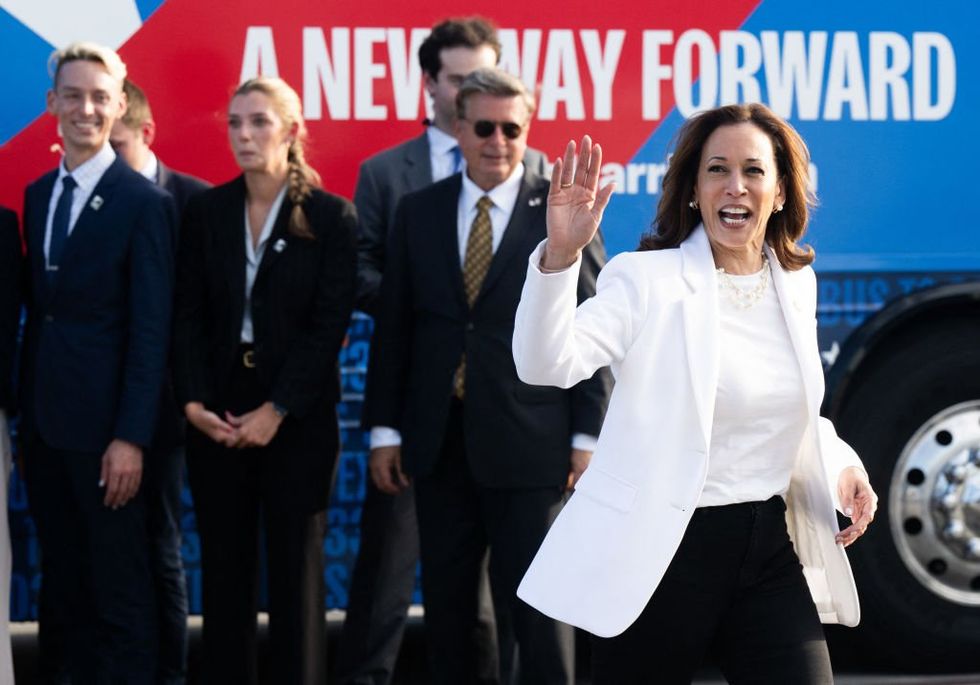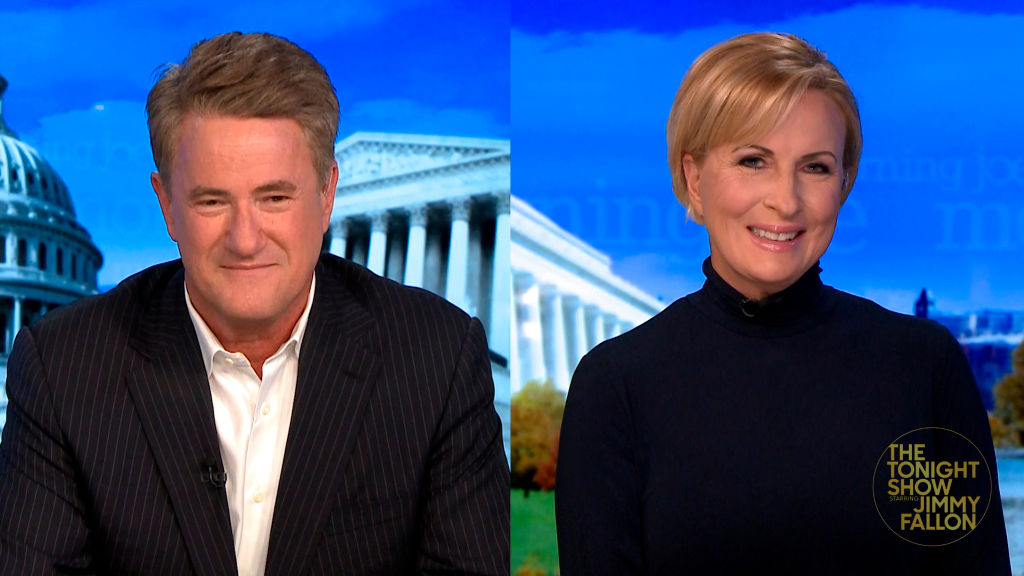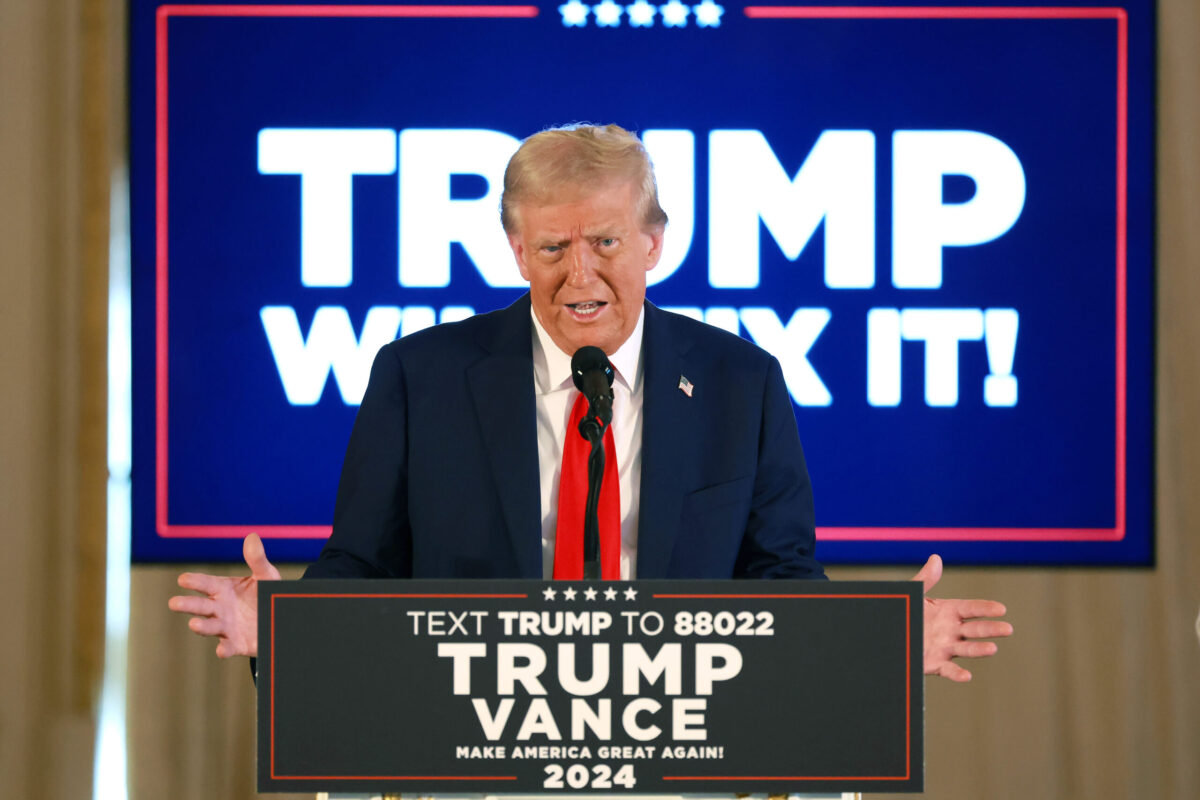Kamala Harris is pro-worker like McDonald’s is pro-cow
Kamala Harris has yet to release any official policy proposals on her campaign website, but she has been sharing her thoughts through speeches, social media posts, and surrogates. One of her latest positions, now with more “joy,” claims she is pro-worker and pro-small-business — quite the rebranding.Harris broke more Senate ties than any vice president in history, directly influencing key legislation. She played a decisive role in bad administration policies, casting the deciding vote on measures like the American Rescue Plan, which stoked historic inflation that continues to burden workers and businesses. She also voted for the Inflation Reduction Act, which drove up deficits and allowed government spending to overshadow private-sector spending. The vice president’s tie-breaking votes make her directly responsible for these outcomes.Your work should be your choice — not to mention that flexible work benefits the economy. But Harris doesn’t think so.Harris’ proposed policies do little to remove regulatory or tax barriers for small businesses and workers; in fact, many of her ideas would do the opposite. Higher corporate taxes, increased capital gains taxes, and unrealized gains taxes, regardless of the intended income bracket, would negatively affect hiring, worker pay, and small business operations. While she has mentioned increasing a tax credit for small businesses, she has provided no clear specifics. Any potential credit would likely be offset by the increases in other corporate and income taxes.The Biden-Harris administration often uses meaningless statistics to boast about its supposed small business success. For instance, the administration claims a “record” 19 million “small business applications” were received under its leadership. The problem is that no one can explain what this figure actually represents, and I have asked several people deeply involved in the small business community, including major lobbying organizations.We do know that this statistic has nothing to do with new business formation at those levels. You don’t need to apply to become a small business, although small businesses with entities do register at the state level. Currently, over 33 million small businesses exist, and that number typically grows by fewer than 1 million per year in normal, active years.Even in 2020, during the pandemic — a significant time for new small business formation — around 1.07 million new businesses were started, according to the Small Business Administration.Harris’ stance against worker freedom further harms both workers and small businesses. Supporting them means respecting an individual’s right to choose how and when to work. More than 70 million gig workers operate in the United States, alongside over 33 million small businesses.Workers often pursue flexibility and independence, choosing to set their own hours and work terms instead of becoming traditional employees. Small businesses prefer hiring contractors to avoid the increased costs, time, and regulatory burdens of managing a full-time workforce.When both parties agree to an arrangement that works for them and pay their taxes — self-employed individuals pay double the self-employment tax, covering both their contribution and what an employer would pay — the government has no business interfering.Your work should be your choice — not to mention that flexible work benefits the economy.But Harris doesn’t think so, despite her claims of being pro-worker and pro-small-business.In 2021, the Biden-Harris administration reversed a pro-worker independent contractor rule established under President Trump. In 2024, the Biden-Harris Department of Labor introduced a stricter set of standards, reducing the ability to be or hire a contractor, though enforcement has remained limited so far.Harris pushed this stance even farther. On September 2, 2024, she posted on X (formerly Twitter): “When I am President, we will pass the PRO Act and end union-busting once and for all.” The PRO Act includes anti-contractor provisions similar to California’s AB 5 rule, aiming to nationalize these restrictive measures and impose other anti-contractor, anti-free-work, and anti-small-business positions into law.Kamala Harris’ actions clearly oppose worker freedom and small business success. These large groups should let her know what they think of that in November.


Kamala Harris has yet to release any official policy proposals on her campaign website, but she has been sharing her thoughts through speeches, social media posts, and surrogates. One of her latest positions, now with more “joy,” claims she is pro-worker and pro-small-business — quite the rebranding.
Harris broke more Senate ties than any vice president in history, directly influencing key legislation. She played a decisive role in bad administration policies, casting the deciding vote on measures like the American Rescue Plan, which stoked historic inflation that continues to burden workers and businesses. She also voted for the Inflation Reduction Act, which drove up deficits and allowed government spending to overshadow private-sector spending. The vice president’s tie-breaking votes make her directly responsible for these outcomes.
Your work should be your choice — not to mention that flexible work benefits the economy. But Harris doesn’t think so.
Harris’ proposed policies do little to remove regulatory or tax barriers for small businesses and workers; in fact, many of her ideas would do the opposite. Higher corporate taxes, increased capital gains taxes, and unrealized gains taxes, regardless of the intended income bracket, would negatively affect hiring, worker pay, and small business operations. While she has mentioned increasing a tax credit for small businesses, she has provided no clear specifics. Any potential credit would likely be offset by the increases in other corporate and income taxes.
The Biden-Harris administration often uses meaningless statistics to boast about its supposed small business success. For instance, the administration claims a “record” 19 million “small business applications” were received under its leadership. The problem is that no one can explain what this figure actually represents, and I have asked several people deeply involved in the small business community, including major lobbying organizations.
We do know that this statistic has nothing to do with new business formation at those levels. You don’t need to apply to become a small business, although small businesses with entities do register at the state level. Currently, over 33 million small businesses exist, and that number typically grows by fewer than 1 million per year in normal, active years.
Even in 2020, during the pandemic — a significant time for new small business formation — around 1.07 million new businesses were started, according to the Small Business Administration.
Harris’ stance against worker freedom further harms both workers and small businesses. Supporting them means respecting an individual’s right to choose how and when to work. More than 70 million gig workers operate in the United States, alongside over 33 million small businesses.
Workers often pursue flexibility and independence, choosing to set their own hours and work terms instead of becoming traditional employees. Small businesses prefer hiring contractors to avoid the increased costs, time, and regulatory burdens of managing a full-time workforce.
When both parties agree to an arrangement that works for them and pay their taxes — self-employed individuals pay double the self-employment tax, covering both their contribution and what an employer would pay — the government has no business interfering.
Your work should be your choice — not to mention that flexible work benefits the economy.
But Harris doesn’t think so, despite her claims of being pro-worker and pro-small-business.
In 2021, the Biden-Harris administration reversed a pro-worker independent contractor rule established under President Trump. In 2024, the Biden-Harris Department of Labor introduced a stricter set of standards, reducing the ability to be or hire a contractor, though enforcement has remained limited so far.
Harris pushed this stance even farther. On September 2, 2024, she posted on X (formerly Twitter): “When I am President, we will pass the PRO Act and end union-busting once and for all.” The PRO Act includes anti-contractor provisions similar to California’s AB 5 rule, aiming to nationalize these restrictive measures and impose other anti-contractor, anti-free-work, and anti-small-business positions into law.
Kamala Harris’ actions clearly oppose worker freedom and small business success. These large groups should let her know what they think of that in November.
Originally Published at Daily Wire, World Net Daily, or The Blaze
What's Your Reaction?
































































































